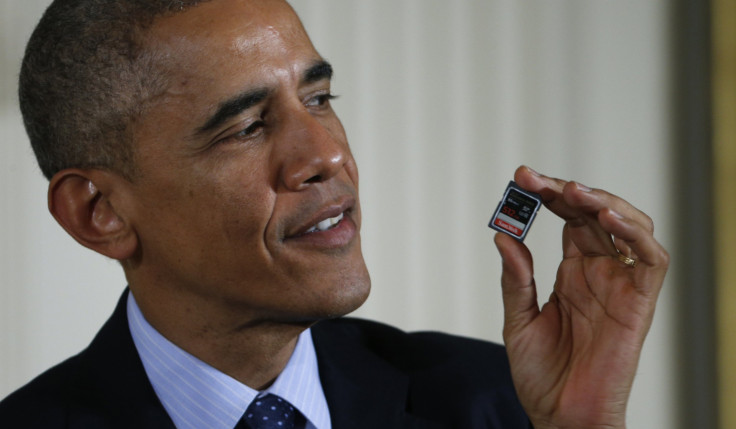Immigration Reform 2014: Tech Industry Wants More Green Cards For Foreign Programmers

Microsoft is looking to fill a number of lucrative positions. The world’s largest software company is seeking individuals who can help build a next-generation system to power cloud computing for banking, health care and scientific research.
“We are ready to hire developers who push the boundaries of parallel storage and computation,” the company states in its online ad for a “Software Development Engineer II.” The average salary at Microsoft for a "Software Engineer II" is $112,000, according to Glassdoor.
Amid ongoing talk of what is sometimes called a "jobless recovery" in the U.S. economy, this plum role at one of tech’s most prominent companies has been open since early May. Further, the company also has more than 500 other lucrative, unfilled jobs on offer.
Microsoft, along with other Silicon Valley giants like Apple, Google and Hewlett-Packard, have long complained that while the U.S. may be suffering from a glut of overqualified fast-food workers, it’s definitely experiencing a critical shortage of tech talent capable of working with the most advanced systems in growing fields like the cloud, mobile systems and social media. The Partnership For A New American Economy, a pro-business think tank, estimates that by 2018 the U.S. will face a shortfall of 200,000 graduates with advanced degrees in science, technology, engineering and math.
Big Tech is hoping that President Obama, as part of his announcement Thursday on how he plans to reform the country’s immigration system through executive action, throws the industry a bone amid what is expected to be a plan focused mostly on dealing with undocumented people already in the country.
Experts say, based on White House leaks, Silicon Valley may indeed get some of what it wants. “It’s a guessing game,” said Ted Ruthizer, an attorney at Kramer Levin Naftalis & Frankel who has been president of the American Immigration Lawyers Association. “I think what the president is going to do is recalculate the way visas are used for green cards.”
The U.S. currently caps the number of employment-based green cards issued each year at 140,000, a number for which demand far outstrips supply. The upshot is that skilled workers from technology hotbeds like India and China are facing green card waits of a decade or more. Almost half of the annual allotment goes to spouses and working-age children of principal applicants — say, a software architect from Bangalore or a hardware engineer from Guangzhou.
Ruthizer said Obama may act administratively to exempt relatives’ green cards from the cap count. “That could more than double the number of available green cards and clear the backlog pretty quickly.”
Obama could also direct the Department of Homeland Security, which oversees immigration enforcement, to simply ignore the requirement that skilled workers in the U.S. on temporary visas like the H-1B leave the country after six years. The H-1B program is currently capped at 85,000 new workers per year, including 20,000 from graduates of U.S. colleges.
Microsoft declined to comment for this story, but founder and former CEO Bill Gates has been vocal about the issue. “For those who wish to stay and work in computer science or technology, fields badly in need of their services, let’s roll out the welcome mat,” Gates wrote in a New York Times op-ed piece in July. The column was co-authored by Warren Buffet and casino magnate Sheldon Adelson.
Not everyone buys the notion of a tech-worker shortage, and the debate pits Obama’s supporters in Silicon Valley, of which he has many, against the Democrats’ traditional union base.
Advocates for U.S.-born programmers and other technology pros note that the companies that are seeking to bring in more help from abroad have laid off thousands in the past couple of years. Microsoft in July said it planned to cut 18,000 jobs, a process that is now playing out across its various divisions. Last month Hewlett-Packard announced a whopping 55,000 layoffs as part of a plan to split into two, publicly traded entities. IBM has trimmed its U.S. roster by thousands over the past half decade.
“We have always promoted the hiring of unemployed U.S. citizens first for tech jobs and have opposed the firing of U.S. workers while offshore workers remain on the job,” said Lee Conrad, national coordinator for Alliance@IBM. The group is an affiliate of Communications Workers of America, Local 1701, and has been attempting to unionize workers at IBM.
Obama is expected to speak at 8 p.m. EST.
© Copyright IBTimes 2024. All rights reserved.





















